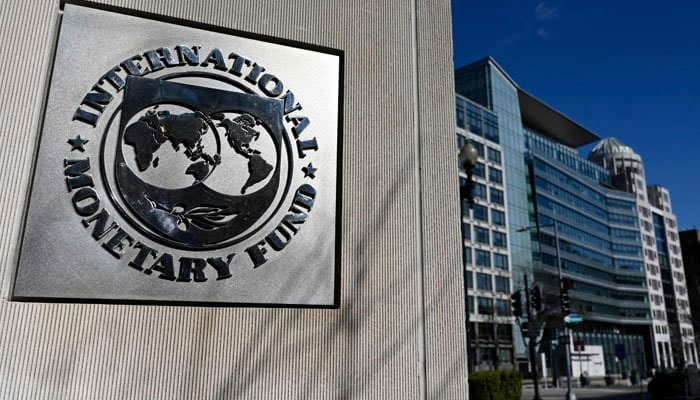Pakistan 'agrees' to raise policy rate by 2% under IMF pressure
There's no discussion being held with IMF over political situation of Pakistan, sources say
As the economic crisis in Pakistan worsens with depleting foreign currency reserves barely enough to pay for three weeks worth of imports, the country agreed on Saturday before the International Monetary Fund (IMF) to increase the policy rate by 2% — one of the conditions to secure the Fund's bailout package.
Sources privy to the matter told Geo News that virtual negotiations with the IMF continued till late at night, adding that officials from the international lender were "painstakingly reviewing" every aspect.
The sources said that Pakistan has agreed to raise its policy rate by 2%. It currently stands at 17%.
The sources also added that details regarding reforms in the power sector are being finalised and after the settlement, a staff-level agreement (SLA) will be signed.
The power sector has remained a hurdle so far as it has become one of the major stumbling blocs between Pakistan and the IMF.
Pakistan has also briefed the lender in detail on external financing till June, the sources said.
The sources said IMF is also holding talks with those countries in order to get assurance. There's no discussion being held regarding the political situation of Pakistan, they added.
IMF talks
Pakistani authorities have been negotiating with the IMF since early February over policy framework issues and are hoping to sign a staff-level agreement that will pave the way for more inflows from other bilateral and multilateral lenders.
Once the deal is signed, the lender will disburse a tranche of more than $1 billion from the $6.5 billion bailout agreed to in 2019.
Pakistan has already taken a string of measures, including adopting a market-based exchange rate; a hike in fuel and power tariffs; the withdrawal of subsidies, and more taxation to generate revenue to bridge the fiscal deficit.
The strict measures are likely to further cool the economy and stoke inflation, which stood at 27.50% in January.
The South Asian country's economy has been in turmoil and desperately needs external financing, with its foreign exchange reserves dipping to around $3 billion, barely enough for three weeks' worth of imports.
-
Bitcoin crashes below $63K as regulatory pressure and market fears grow
-
Bitwise Crypto Industry innovators ETF: What investors should do in 2026?
-
Nintendo shares slide again as momentum fears grow
-
Gold, silver prices fallen sharply; What’s driving the drop?
-
Gold’s record climb: Experts question if its safety is ‘overstated’
-
Dubai unveils plans to construct street built with real gold
-
Netflix slams Paramount’s bid: 'Doesn't pass sniff test’ as Warner battle escalates
-
Ubisoft: Shares plunge amid restructuring plan and wave of games cancellations












